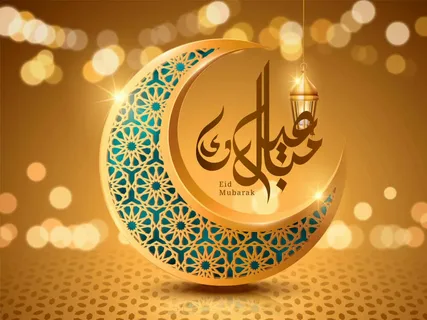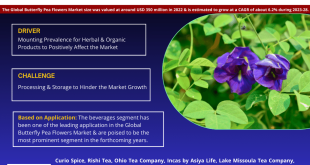When is Eid-ul-Fitr and what is eid-ul-fitr, alternatively referred to as the “Festival of Breaking the Fast,” signifies the conclusion of Ramadan, the sacred month of fasting in the Islamic calendar. Eid-ul-Fitr, a joyous Muslim celebration, involves prayers, feasting, and gift-giving. This article explores its significance and how its date is determined the festivities surrounding it, and more About Eid-ul-Fitr. The eid-ul-fitr 2024 will be on Monday, April 8.
Understanding Eid-ul-Fitr
What is Eid-ul-Fitr?
Eid-ul-Fitr is an Islamic holiday that celebrates the conclusion of the fasting month of Ramadan. It’s a time of joy, gratitude, and spiritual reflection for Muslims around the globe.
Significance of Eid-ul-Fitr
This auspicious occasion holds immense significance in Islam, symbolizing the completion of a month-long period of fasting, self-reflection, and spiritual growth. It’s a time for Muslims to come together in unity, express gratitude for the blessings received during Ramadan, and seek forgiveness for past sins.
Determining the Date of Eid-ul-Fitr 2024
Calculation Methodologies
The date of Eid-ul-Fitr varies each year as it follows the lunar Islamic calendar. The Shawwal moon’s sighting signifies the commencement of the Islamic month of Shawwal.
Global Observance
Eid-ul-Fitr, a joyous occasion celebrated globally, faces regional variations in moon sightings and religious interpretations, yet efforts are made to maintain global unity.

Celebrations and Traditions
Preparations for Eid-ul-Fitr
In the days leading up to Eid-ul-Fitr, Muslims engage in thorough cleaning, shopping for new clothes, and preparing special dishes for the festive meals.
Festivities and Gatherings
On the day of Eid-ul-Fitr, Muslims gather in mosques or open spaces for communal prayers, followed by festive meals with family and friends. Gifts and charitable donations are also exchanged as part of the celebrations.
On the day of Eid-ul-Fitr, Muslims come together to partake in joyous festivities and gatherings that mark the culmination of Ramadan. The Eid prayer, Salat al-Eid, is a significant event celebrated globally, starting with the early morning prayer in mosques, open fields, and community centers.
Communal Prayers
Communal prayers are an integral part of Eid-ul-Fitr celebrations, where Muslims gather in large congregations to offer thanks to Allah for the strength and guidance provided during the month of fasting. The prayer is led by an Imam and includes a sermon that emphasizes the importance of unity, gratitude, and compassion.
Family Reunions
Eid-ul-Fitr is a time for families to come together and celebrate the bonds of kinship. Relatives gather in each other’s homes to exchange greetings, share festive meals, and offer prayers for prosperity and blessings. It’s a time of warmth, laughter, and joyous reunions as family members, both near and far, come together to celebrate this auspicious occasion.
Festive Meals
One of the highlights of Eid-ul-Fitr is the sumptuous feast that follows the morning prayers. Families prepare elaborate dishes, including traditional favorites such as biryani, kebabs, sweets, and desserts, to share with loved ones and guests. The feast symbolizes abundance, generosity, and the joy of sharing blessings with others.

Exchange of Gifts
Gift-giving is a cherished tradition during Eid-ul-Fitr, reflecting the spirit of generosity and goodwill. Family members, friends, and neighbors exchange presents as tokens of love, appreciation, and friendship. From clothes and accessories to sweets and toys, the exchange of gifts adds to the festive atmosphere and strengthens social bonds within the community.
Acts of Charity
Eid-ul-Fitr is also a time for giving back to those in need. Muslims are encouraged to perform acts of charity, known as Zakat-ul-Fitr, before the Eid prayers. This obligatory donation ensures that everyone can partake in the joy of Eid by providing food, clothing, and other essentials to the less fortunate. It’s a reminder of the importance of compassion, empathy, and solidarity in building a more equitable society.
Community Events
In addition to family gatherings, many communities organize special events and activities to celebrate Eid-ul-Fitr. These may include cultural performances, bazaars selling traditional crafts and delicacies, and charity drives to support local causes. Such events bring people together, foster a sense of belonging, and showcase the rich diversity of Muslim cultures around the world.
Generosity
Festivities and gatherings during Eid-ul-Fitr embody the spirit of joy, unity, and generosity that defines this auspicious occasion. From communal prayers and family reunions to festive meals and acts of charity, Muslims come together to celebrate their faith, strengthen bonds of kinship, and spread love and kindness to all.
Eid-ul-Fitr Around the World
Cultural Variations
While the essence of Eid-ul-Fitr remains the same, its celebration varies across different cultures and regions. Each community adds its unique cultural elements to the festivities, making it a vibrant and diverse occasion.
Unique Traditions
From the colorful bazaars of Istanbul to the elaborate feasts in Cairo, Eid-ul-Fitr showcases a rich tapestry of traditions and customs. In places like Indonesia, Malaysia, and Pakistan, special cultural events and performances add to the festive spirit.
Eid-ul-Fitr is a vibrant celebration showcasing diverse regional traditions, enhancing the festive atmosphere with its vibrant colors and richness. These customs reflect the diverse cultural tapestry of the Muslim world and highlight the creativity and ingenuity of communities in expressing their joy and reverence for this special occasion.
Cultural Variations
Eid-ul-Fitr is a religious holiday celebrated with distinctive customs and rituals that showcase local traditions and heritage across diverse countries and communities. From the bustling streets of Istanbul to the serene villages of Indonesia, each region adds its unique flavor to the festivities, creating a vibrant tapestry of cultural expressions.

Special Prayers and Sermons
In some regions, special prayers and sermons are held in mosques and community centers during Eid-ul-Fitr. These gatherings provide an opportunity for religious leaders to deliver inspiring messages of unity. It show gratitude, and compassion, reinforcing the spiritual significance of the occasion and guiding believers on the path of righteousness.
Decorative Displays
In many parts of the world, streets, homes, and public spaces are adorned with colorful decorations. It also lights to mark the festive occasion of Eid-ul-Fitr. Intricate patterns, vibrant banners, and illuminated motifs create a festive atmosphere and add to the joyous ambiance of the celebrations.
Traditional Attire
Wearing new clothes is a cherished tradition during Eid-ul-Fitr, symbolizing renewal, freshness, and spiritual purity. In different cultures, traditional attire varies, with colorful fabrics, intricate embroidery, and ornate. That accessories reflecting the unique identity and heritage of each community.
Festive Markets and Bazaars
Eid-ul-Fitr is often accompanied by bustling markets and bazaars selling a variety of goods. It also includes clothing, accessories, decorations, and culinary delights. These markets become hubs of activity and social interaction, where families shop for Eid essentials. And sample delicious treats, and soak in the festive atmosphere.
Community Feasts and Open Houses
Many communities organize communal feasts and open houses during Eid-ul-Fitr, inviting neighbors, friends, and strangers to join in the celebrations. These gatherings promote camaraderie, friendship, and solidarity, fostering a sense of belonging and inclusivity among people from diverse backgrounds.
Cultural Performances and Entertainment
Eid-ul-Fitr is a religious holiday celebrated with distinctive customs and rituals. That showcase local traditions and heritage across diverse countries and communities. These artistic expressions showcase the talents and creativity of community members and provide moments of joy and inspiration for all.
Kinship and community
Unique traditions during Eid-ul-Fitr highlight the cultural richness and diversity of the Muslim world. It brings people together in celebration and solidarity. Whether through special prayers and sermons, decorative displays, or communal feasts. These customs create memorable experiences and strengthen bonds of kinship and community.

Conclusion
Eid-ul-Fitr is not just a religious holiday but a time of joy, unity, and generosity. It brings together Muslims from diverse backgrounds to celebrate their shared faith and values. As we bid farewell to Ramadan and welcome the new month of Shawwal.
FAQs
What is the significance of Eid-ul-Fitr?
Eid-ul-Fitr marks the end of Ramadan, the holy month of fasting. It is a time for Muslims to celebrate their spiritual journey and express gratitude for blessings received.
How is the date of Eid-ul-Fitr determined?
The Islamic lunar calendar determines the day of Eid-ul-Fitr based on the sighting of the Shawwal moon.
What are some common traditions associated with Eid-ul-Fitr?
Common traditions include attending communal prayers, exchanging gifts, feasting on special dishes, and giving to charity.
How is Eid-ul-Fitr celebrated around the world?
Eid-ul-Fitr is a global celebration with diverse cultural customs and festivities, incorporating unique traditions from each community.
What is the significance of charitable giving during Eid-ul-Fitr?
Charitable giving, known as Zakat-ul-Fitr, is obligatory for Muslims before Eid-ul-Fitr prayers. It ensures that everyone can partake in the festivities and enjoy the blessings of the occasion.
 Daily Blogger News Stay updated with the latest trends and insights. Your reliable source for daily updates and information.
Daily Blogger News Stay updated with the latest trends and insights. Your reliable source for daily updates and information.




